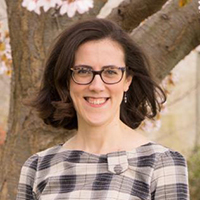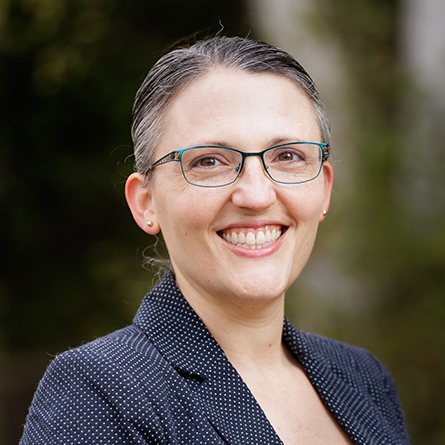
Professor Joyce Bennett receives Fulbright support for project on Maya women’s weaving
Assistant Professor of Anthropology Joyce Bennett is the recipient of a prestigious Fulbright U.S Scholar Award to pursue a new research project at the Universidad del Valle de Guatemala. Bennett, whose work focuses on sociocultural and sociolinguistic issues in Central and North America, will study how Maya women’s traditional weaving has, in recent years, become embroiled in battles over intellectual property rights.
“Unlike the traditional Western shirts that you and I might wear, Indigenous Maya women typically weave blouses on a back shaft loom, which is a technology that’s been passed down for thousands of years,” Bennett explained.
But for many years, Western fashion designers have appropriated these designs—and now, they are trying to claim intellectual property rights over them.
“This would mean that Indigenous women in Guatemala who have been passing down these designs generation by generation can no longer use them in their weaving and would be breaking the law by using their own traditional patterns,” Bennett said.
Activist groups are already pursuing legal and legislative responses. But “it can be tricky. We’re talking about international legal realms, and the women that I work with are some of the most marginalized in the Western hemisphere,” said Bennett.
These Maya women are taking an unusual legal approach, she added, claiming this intellectual property for communities rather than individuals or corporations. Instead of using the law to bolster company profits, the hope is to “rework intellectual property rights law to challenge this individualistic, accumulative, capitalistic way of going about things.”
This new project grew out of Bennett’s book Good Maya Women: Migration, Clothing, and Language Revitalization in Highland Guatemala. When looking for a new area of research, she found that “issues around copyright and intellectual property rights are abundant for Indigenous peoples in Guatemala, yet they don’t get a lot of scholarly attention.”
“But there’s a lot of money at stake and it’s got big implications for the way that people live their life, even though it’s seen as ‘just clothing,’” said Bennett.
The anthropologist hopes her research will bring greater awareness of these issues and make information and tools more readily available in Guatemala. Another outcome will be a new book, co-authored with Guatemalan activist and academic Ixnal Ambrocia Cuma Chávez. Lastly, her research will return to Conn and be incorporated into the classroom.
“A lot of my classes are about social justice issues,” she said. “And that always has to do with the material reality of our lives.”

